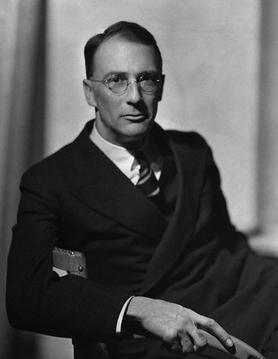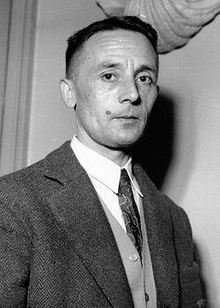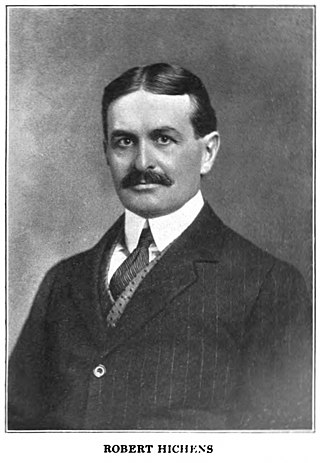
Cecil Louis Troughton Smith, known by his pen name Cecil Scott "C. S." Forester, was an English novelist known for writing tales of naval warfare, such as the 12-book Horatio Hornblower series depicting a Royal Navy officer during the Napoleonic Wars.

William Robertson Davies was a Canadian novelist, playwright, critic, journalist, and professor. He was one of Canada's best known and most popular authors and one of its most distinguished "men of letters", a term Davies gladly accepted for himself. Davies was the founding Master of Massey College, a graduate residential college associated with the University of Toronto.

Nachem Malech Mailer, known by his pen name Norman Kingsley Mailer, was an American novelist, journalist, playwright, and filmmaker. In a career spanning more than six decades, Mailer had 11 best-selling books, at least one in each of the seven decades after World War II.

The First Barbary War (1801–1805), also known as the Tripolitan War and the Barbary Coast War, was a conflict during the Barbary Wars, in which the United States and Sweden fought against Tripolitania. Tripolitania had declared war against Sweden and the United States over disputes regarding tributary payments made by both states in exchange for a cessation of Tripolitanian commerce raiding at sea. United States President Thomas Jefferson refused to pay this tribute. Sweden had been at war with the Tripolitans since 1800. The First Barbary War was the first major American war fought outside the New World, and in the Arab world.

Kenneth Lewis Roberts was an American writer of historical novels. He worked first as a journalist, becoming nationally known for his work with the Saturday Evening Post from 1919 to 1928, and then as a popular novelist. Born in Kennebunk, Maine, Roberts specialized in regionalist historical fiction, often writing about his native state and its terrain and also about other upper New England states and scenes. For example, the main characters in Arundel and Rabble in Arms are from Kennebunkport, the main character in Northwest Passage is from Kittery, Maine and has friends in Portsmouth, New Hampshire, and the main character in Oliver Wiswell is from Milton, Massachusetts.

The Barbary pirates, Barbary corsairs, or Ottoman corsairs were mainly Muslim pirates and privateers who operated from the largely independent Ottoman Barbary states. This area was known in Europe as the Barbary Coast, in reference to the Berbers. Slaves in Barbary could be of many ethnicities, and of many different religions, such as Christian, Jewish, or Muslim. Their predation extended throughout the Mediterranean, south along West Africa's Atlantic seaboard and into the North Atlantic as far north as Iceland, but they primarily operated in the western Mediterranean. In addition to seizing merchant ships, they engaged in razzias, raids on European coastal towns and villages, mainly in Italy, France, Spain, and Portugal, but also in the British Isles, the Netherlands, and Iceland.

Hedwig "Vicki" Baum was an Austrian writer. She is known for the novel Menschen im Hotel, one of her first international successes. It was made into a 1932 film and a 1989 Broadway musical.

The sack of Baltimore took place on 20 June 1631, when the village of Baltimore in West Cork, Ireland, was attacked by pirates from the Barbary Coast of North Africa — the raiders included Dutchmen, Algerians, and Ottoman Turks. The attack was the largest by Barbary slave traders on Ireland.

Julien Gracq was a French writer. He wrote novels, critiques, a play, and poetry. His literary works were noted for their dreamlike abstraction, elegant style and refined vocabulary. He was close to the surrealist movement, in particular its leader André Breton.

Percy Howard Newby CBE was an English novelist and broadcasting administrator. He was the first winner of the Booker Prize, his novel Something to Answer For having received the inaugural award in 1969.

Robert Smythe Hichens was an English journalist, novelist, music lyricist, short story writer, music critic and collaborated on successful plays. He is best remembered as a satirist of the "Naughty Nineties".

Originally from the Atlas Mountains and the Rif Mountains of Morocco, the Barbary macaque population in Gibraltar is the only wild monkey population on the European continent. Although most Barbary monkey populations in Africa are experiencing decline due to hunting and deforestation, the Gibraltar population is increasing. As of 2020, some 300 animals in five troops occupy the Upper Rock area of the Gibraltar Nature Reserve, though they make occasional forays into the town. As they are a tailless species, they are also known locally as Barbary apes or rock apes, despite being classified as monkeys. Spanish speakers simply refer to them as monos when conversing in Spanish, although English is the native language as the area is a British overseas territory.
Jack Gelber was an American playwright best known for his 1959 drama The Connection, depicting the life of drug-addicted jazz musicians. The first great success of the Living Theatre, the play was translated into five languages and produced in ten nations. Gelber continued to work and write in New York, where he also taught writing, directing and drama as a professor, chiefly at Brooklyn College, City University of New York, where he created the MFA program in playwriting. In 1999 he received the Edward Albee Last Frontier Playwright Award in recognition of his lifetime of achievements in theatre.
Stephen Longstreet was an American writer and artist.

Ivan Sergeyevich Shmelyov was a Russian writer best known for his full-blooded idyllic recreations of the pre-revolutionary past spent in the merchant district of Moscow. He was a member of the Moscow literary group Sreda. After the October Revolution Shmelyov fled to France, becoming an émigré writer.
Barrie Barbary was an Australian rules footballer who played 213 games for North Adelaide and Woodville in the SANFL between 1957 – 1970. He was the 1960 Magarey Medalist and had a 14-year SANFL career. He is also a cousin to John Cahill and Darrell Cahill.

Advertisements for Myself is an omnibus collection of fiction, essays, verse, and fragments by Norman Mailer, with autobiographical commentaries that he calls "advertisements." Advertisements was published by G.P. Putnam's Sons in 1959 after Mailer secured his reputation with The Naked and the Dead, then endured setbacks with the less-enthusiastic reception of Barbary Shore (1951) and The Deer Park (1955). Advertisements, though chaotic, unapologetically defiant, and often funny, marks the beginning of Mailer's mature style.
Charles Tory Bruce was a Canadian poet, journalist and fiction writer. He was most noted for his poetry collection The Mulgrave Road, which won the Governor General's Award for English-language poetry or drama at the 1951 Governor General's Awards.

"The Man Who Studied Yoga", a novella by Norman Mailer written in 1952, was first published in the 1956 collection New Short Novels 2 then later in Mailer's 1959 miscellany Advertisements for Myself (AFM). It is a tale of a "writer manqué", or a writer who fails to write, reflecting some of Mailer's own anxiety in the 1950s as he tries to reinvent himself.
Barbary or Barbary Coast or Barbary states is the term used by Europeans from the 16th century until the 19th century to refer to the coastal regions of what are now Morocco, Algeria, Tunisia, and Libya.















